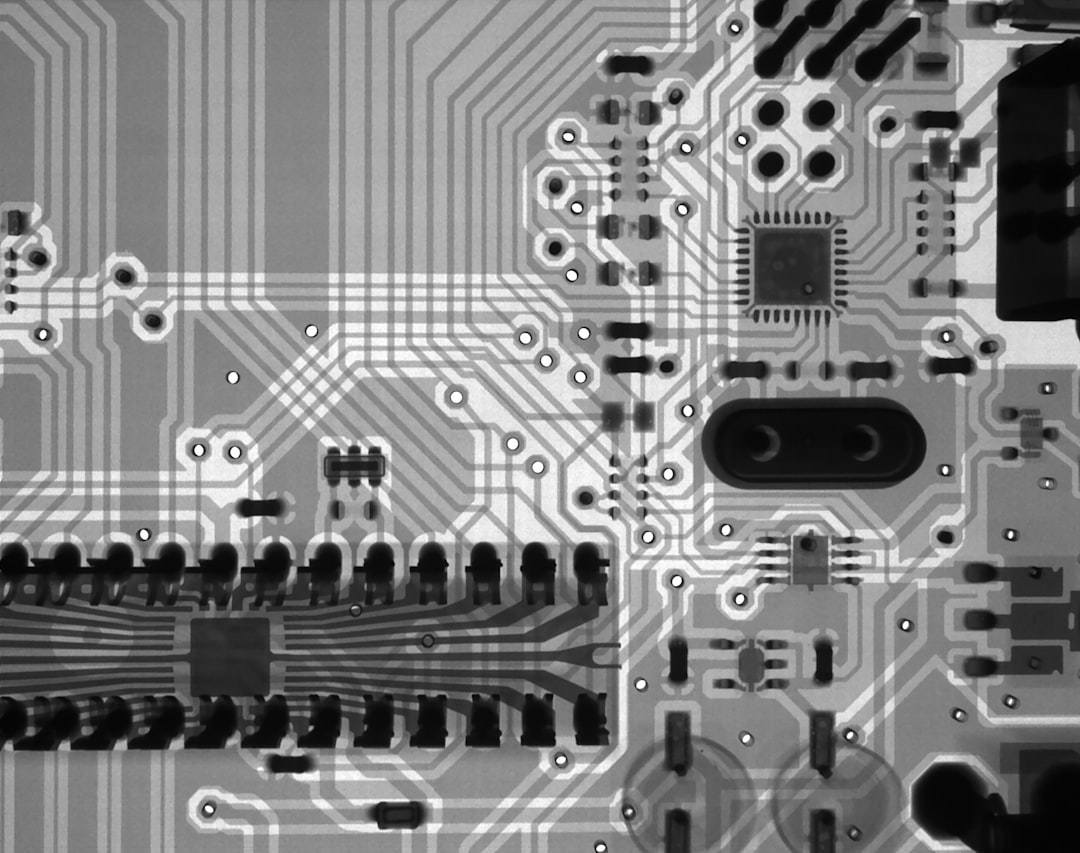Unlock encrypted content
Please enter your SSCE key to initiate on-the-fly decryption.
Decryption key: (Click cancel if you don't have the key)
Copied link to clipboard.
This feature is unavailable for free accounts. Upgrade now and enjoy all Premium benefits.
Go Premium!
This feature is unavailable for free accounts. Upgrade now and enjoy all Premium benefits.
Go Premium!
Please open this page in browser ( Google Chrome or Safari ) to use this feature.
Open In Browser
Cloud Data Security: Advanced Uploading Tools and Wearable Devices for Enhanced File Access Control and Data Redundancy
Random related video for this blog.
Copied share link to clipboard.
With the increasing amount of data being generated and the rise in cyber threats, individuals and businesses alike are seeking robust cloud data security measures to protect their valuable information. This article explores the latest advancements in cloud data security, including advanced uploading tools, wearable devices, file access control, data redundancy, and data sharing permissions. We will also delve into the concept of edge computing storage and its relevance in enhancing cloud storage for individuals.
Advanced Uploading Tools: Simplifying the Cloud Storage Experience
Cloud storage providers have recognized the importance of user-friendly interfaces and easy-to-use uploading tools to enhance the overall user experience. Traditional methods of uploading files to the cloud often involved complex procedures and multiple steps, which could be daunting for individuals with limited technical expertise. However, with the advent of advanced uploading tools, the process has become more streamlined and accessible to users of all skill levels. One such example is FileLu's uploading tool, which offers a seamless and intuitive interface for uploading files to the cloud. With just a few clicks, users can easily transfer their files to the cloud storage platform, ensuring a hassle-free experience. This tool eliminates the need for complicated file transfer protocols or manual configurations, making it an ideal solution for individuals looking for simplicity and efficiency.File Access Control: Protecting Your Data from Unauthorized Access
Data security is a top concern for individuals and businesses alike. Ensuring that only authorized individuals have access to sensitive files is crucial in preventing data breaches and unauthorized use. Cloud storage providers have recognized this need and have implemented robust file access control mechanisms to protect user data. FileLu, for instance, offers comprehensive file access control features that allow users to define and manage permissions for each file or folder. Users can specify who canaccess, edit, or delete their files, ensuring that only authorized individuals have the necessary privileges. This level of control empowers users to safeguard their data and maintain confidentiality, even when sharing files with others.
Data Redundancy: Ensuring Data Integrity and Availability
Data redundancy is a critical aspect of cloud data security. It involves storing multiple copies of data across different physical locations or servers to ensure its availability in case of hardware failures, natural disasters, or other unforeseen events. By maintaining redundant copies of data, cloud storage providers can ensure data integrity and minimize the risk of data loss. FileLu employs advanced data redundancy techniques to safeguard user data. With its distributed storage architecture, data is replicated across multiple servers, ensuring that even if one server fails, the data remains accessible from other servers. This approach not only enhances data availability but also provides an additional layer of protection against data loss.Wearable Devices: Taking Cloud Data Security to the Next Level
The integration of wearable devices with cloud storage solutions has opened up new possibilities for enhancing data security. Wearable devices, such as smartwatches and fitness trackers, can serve as secure authentication tools, adding an extra layer of protection to cloud storage platforms. For instance, imagine a scenario where a user wants to access their cloud-stored files. Instead of relying solely on traditional authentication methods, such as passwords or PINs, the user can authenticate their identity using a wearable device. This two-factor authentication approach significantly reduces the risk of unauthorized access, as the wearable device acts as a physical token that only the user possesses.Edge Computing Storage: Empowering Individuals with Faster Access to Data
Edge computing storage is a concept that brings the processing and storage capabilities closer to the data source. Unlike traditional cloud storage, where data is stored and processed in centralized data centers, edge computing storage allows data to be stored and processed at the network edge, closer to the user or device generating the data. This approach offers several advantages, especially in terms of data access speed and latency reduction. With edge computing storage, individuals can enjoy faster access to their cloud-stored data, as the data is located in proximity to their devices. This is particularly beneficial for applications that require real-time data processing, such as video streaming or IoT devices. Conclusion As the reliance on cloud storage continues to grow, so does the importance of robust cloud data security measures. Advanced uploading tools, file access control, data redundancy, wearable devices, and edge computing storage are some of the latest advancements that are shaping the future of cloud data security. By leveraging these technologies, individuals and businesses can enhance the confidentiality, integrity, and availability of their data, ensuring peace of mind and protection against cyber threats.Frequently Asked Questions (FAQs)
Question: How can advanced uploading tools simplify the cloud storage experience? Answer:
Advanced uploading tools, such as FileLu's intuitive interface, streamline the process of transferring files to the cloud, making it simple and accessible for users of all skill levels.
Question: What is file access control, and why is it important for cloud data security? Answer:
File access control allows users to define and manage permissions for their files, ensuring that only authorized individuals can access, edit, or delete them. This is crucial for maintaining data confidentiality and preventing unauthorized use.
Question: How does data redundancy enhance cloud data security? Answer:
Data redundancy involves storing multiple copies of data across different servers or locations, minimizing the risk of data loss. By maintaining redundant copies, cloud storage providers can ensure data integrity and availability, even in the event of hardware failures or natural disasters.
Question: How do wearable devices contribute to cloud data security? Answer:
Wearable devices, such as smartwatches, can serve as secure authentication tools, adding an extra layer of protection to cloud storage platforms. By using wearable devices for authentication, users can reduce the risk of unauthorized access to their cloud-stored files.
Question: What are the benefits of edge computing storage for individuals? Answer:
Edge computing storage brings data processing and storage capabilities closer to the user or device, resulting in faster access to cloud-stored data and reduced latency. This is particularly advantageous for applications that require real-time data processing or IoT devices.
By Amelia Isabella
Email: [email protected]
Related
Cross-Device File Synchronization: Enhancing Productivity and Efficiency in the Digital...
August 1, 2023
Read More
Unmanned Aerial Vehicle (UAV): Revolutionizing Industries with Artificial Intelligence (AI)
August 1, 2023
Read More
Artificial Intelligence (AI): Shaping Futuristic Societies with Emerging Technologies
August 2, 2023
Read More
Introducing FileLu: The Future of File Collaboration and Brain-Computer Interface
August 2, 2023
Read More
Efficient Backup and Recovery Processes: Ensuring Data Security and Accessibility
August 2, 2023
Read More
Popular
The Future of Technology: Exploring Biohacking, Space Tourism, and Digital...
November 23, 2025
Read More
Exploring the Benefits of Cloud Storage and Innovative Technologies in...
November 26, 2025
Read More
The Future of Digital Transformation: Exploring Smart Homes, Efficient File...
November 30, 2025
Read More
Latest
The Future of Digital Transformation: Exploring Smart Homes, Efficient File...
November 30, 2025
Read More
Exploring the Benefits of Cloud Storage and Innovative Technologies in...
November 26, 2025
Read More
The Future of Technology: Exploring Biohacking, Space Tourism, and Digital...
November 23, 2025
Read More
The Future of File Sharing: Streamlined Workflows for Photographers and...
November 19, 2025
Read More
Exploring the Intersection of Technology: From Cybersecurity to Augmented Reality...
November 16, 2025
Read More
The Future of File Management: Embracing Edge Computing and Efficient...
November 12, 2025
Read More
The Future of File Sharing: Exploring User-Friendly Solutions and Data...
November 5, 2025
Read More
The Future of Cloud Storage: How FileLu Empowers Creative Professionals...
November 2, 2025
Read More
The Future of Autonomous Technologies: Innovations in Robotics, File Sharing,...
October 29, 2025
Read More
Emerging Technologies Revolutionizing File Management: From Li-Fi to Robust Collaboration...
October 26, 2025
Read More
Emerging Technologies: Exploring the Impact of File Access Auditing, Genetic...
October 19, 2025
Read More
The Future of Data Storage: Exploring Advanced Encryption, Mobile Integration,...
October 5, 2025
Read More
Exploring the Future of Data Management: Security, Efficiency, and Cognitive...
September 28, 2025
Read More
Revolutionizing Data Management: Innovations in Storage, Security, and Sustainable Technology.
September 24, 2025
Read More





















